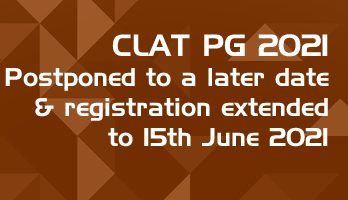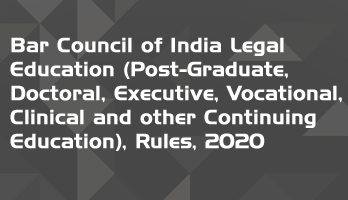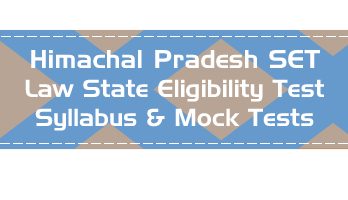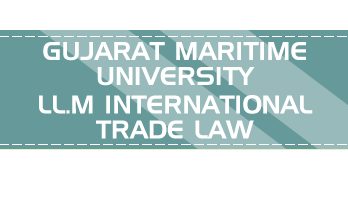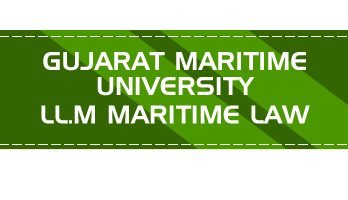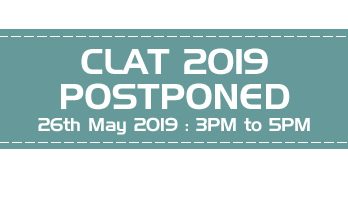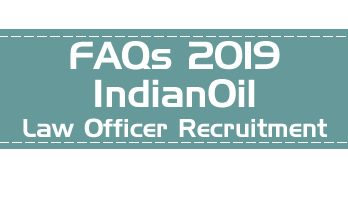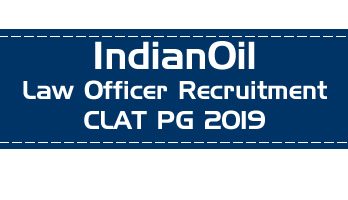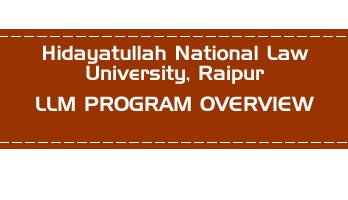Q : Which books are best for LLM CLAT entrance?
Ans :
Are you buying the right material ?
If you are buying printed books, do check and reconfirm if you are buying CLAT books or CLAT PG books.
The links suggested by the other answers seem to be the CLAT (LLB) entrance books. (Some students order the CLAT books assuming that the PG question papers are included.)
First of all, the CLAT PG LLM entrance exam is a multiple choice objective type exam based on the entire LLB syllabus. But the crucial topics are Jurisprudence & Constitutional law – which together account for 2/3rd of the exam (66%).
Extensive theory is not the best way to prepare for multiple choice based exams. The ideal approach would be to solve as many MCQs as possible, covering the entire syllabus, with focus on the critical areas and solve all the previous papers you can find.
Solve at least two mock tests every day and after you have finished, re-attempt the ones from the previous day till you can blindly click on the right answer without thinking too much.
After all, almost 75% ~ 85% of the questions are repeats / variants from previous years or derived from ‘important questions’ from other similar exams.
Q : Where can I find the previous years’ CLAT PG LLM question papers?
Ans :
If you prefer books, just check on Amazon and you’ll find plenty.
Just remember to buy the latest edition since some of the books are older editions which may not have the previous year / previous two years papers. Just reconfirm the edition year and what all papers are included.
If you are ok with practicing online – on your Mobile / PC / Laptop / Tablet / iPad; then read the rest of the answer . . .
Q : What are the important topics for LLM CLAT examination?
Ans :
Copy-pasting for a similar question I answered earlier . . .
Looking at the syllabus for the CLAT LLM entrance exam . . .
There will be fifty questions from Constitutional Law and fifty from Jurisprudence. Together, these two topics will cover 66% or 2/3rd of the CLAT PG exam.
The remaining l/3rd covers all other Law Subjects that are part of the typical LLB syllabus approved by the BCI.
Your preparation should initially focus on the two major areas of the CLAT PG exam and you can look at the previous question papers to get a sense of the type of questions that are asked from these areas.
With a scope of fifty questions, the examiners can go ‘in depth’ with their questions from these two areas. Look at the past ten years question papers and also look at papers from other exams to understand the areas from where questions can be drawn.
Ask yourself : Am I focusing on the right topics for the CLAT LLM exam to increase my efficiency?
Constitution law for CLAT PG
1.\tQuestions which simply test your knowledge of the important articles of the Constitution. E.g. Fundamental rights are covered under which articles of the Constitution.
2. Questions which test your understanding of the nuances of the constitution and the provisions therein. E.g. Which of the following is not a fundamental right guaranteed by the Constitution?
3.\tQuestions that are based on the constitution, but overlap with administrative law; such as the appointment of various Government functionaries – President, Prime Minister, Governor and the powers and functions of Government bodies – as laid down in the Constitution.
Jurisprudence for CLAT PG
1.\tThe CLAT LLM entrance exam usually has a number of questions about the leading Thinkers, Philosophers and Jurists who have played an important part on the evolution of Legal Theory. E.g. Grotius, Savigny, Holmes, Kart, Hegel etc.
2.\tThere are also question about the basic principles of the various schools of law.
3.\tQuestions on the origins of law in India – Hindu Law, Muslim Law, British law
4. Questions on concepts and theories like Grundnorm, Volksgeist
Other Law Subjects for the CLAT LLM Exam
1.\tContract law is a frequently asked area for the CLAT PG exam, along with basic questions around Company Law
2. Question on Hindu Law especially around the Hindu Marriage act.
3.\tQuestions around the basis of Muslim Personal law
If you prefer books, there are quite a few available in the market. Just chose anything which has as many MCQs as possible and not much of theory.
The best approach to CLAT LLM is to practice as many MCQs as possible till you instinctively remember the answer, without having to think too much.
If you prefer practicing online – on your Mobile / Laptop / Desktop / Tab :
Q : What is the syllabus for CLAT LLM ?
Ans :
Looking at the syllabus for the CLAT LLM entrance exam . . .
There will be fifty questions from Constitutional Law and fifty from Jurisprudence. Together, these two topics will cover 66% or 2/3rd of the CLAT PG exam.
The remaining l/3rd covers all other Law Subjects that are part of the typical LLB syllabus approved by the BCI.
Your preparation should initially focus on the two major areas of the CLAT PG exam and you can look at the previous question papers to get a sense of the type of questions that are asked from these areas.
With a scope of fifty questions, the examiners can go ‘in depth’ with their questions from these two areas. Look at the past ten years question papers and also look at papers from other exams to understand the areas from where questions can be drawn.
Ask yourself : Am I focusing on the right topics for the CLAT LLM exam to increase my efficiency?
Constitution law for CLAT PG
1.\tQuestions which simply test your knowledge of the important articles of the Constitution. E.g. Fundamental rights are covered under which articles of the Constitution.
2. Questions which test your understanding of the nuances of the constitution and the provisions therein. E.g. Which of the following is not a fundamental right guaranteed by the Constitution?
3.\tQuestions that are based on the constitution, but overlap with administrative law; such as the appointment of various Government functionaries – President, Prime Minister, Governor and the powers and functions of Government bodies – as laid down in the Constitution.
Jurisprudence for CLAT PG
1.\tThe CLAT LLM entrance exam usually has a number of questions about the leading Thinkers, Philosophers and Jurists who have played an important part on the evolution of Legal Theory. E.g. Grotius, Savigny, Holmes, Kart, Hegel etc.
2.\tThere are also question about the basic principles of the various schools of law.
3.\tQuestions on the origins of law in India – Hindu Law, Muslim Law, British law
4. Questions on concepts and theories like Grundnorm, Volksgeist
Other Law Subjects for the CLAT LLM Exam
1.\tContract law is a frequently asked area for the CLAT PG exam, along with basic questions around Company Law
2. Question on Hindu Law especially around the Hindu Marriage act.
3.\tQuestions around the basis of Muslim Personal law
If you prefer books, there are quite a few available in the market. Just chose anything which has as many MCQs as possible and not much of theory.
The best approach to CLAT LLM is to practice as many MCQs as possible till you instinctively remember the answer, without having to think too much.
If you prefer practicing online – on your Mobile / Laptop / Desktop / Tab :
Q : Which is the best guide for the LLM entrance?
Ans :
Which book should you buy ?
If you prefer to buy a book, look at something which has as many relevant MCQs as possible. Covering as many previous papers + questions from other similar exams (CLAT PG / AILET PG etc.) for practice.
Why ?
LLM entrance exams are based on the LLB syllabus and you are already familiar with the subjects. You don’t need to be explained how the Constitution came into being or what different schools of Jurisprudence are etc.
What you do need is to know the answer to the questions.
As I have been saying, the best way to prepare for any MCQ – objective questions based exam is to just keep practicing . . . practicing and practicing; till you can identify the correct answer for the question – even if you are not completely sure about why it is the correct answer.
Also, there are many questions which don’t need any ‘explanation’ or understanding, since they are fact based.
For example, if a question asks “Which article of the Indian constitution refers to ‘freedom of speech and expression’?”; you just need to know that it is Article 19. There is no explanation required.
Similarly, if the question is twisted around and asks “Article 19 of the constitution of India refers to which of the following?” ; you need to be able to identify the correct answer; there is no explanation!
A bulk of the questions in the LLM entrance exam are in the above pattern… “Who said …… “, “The section ……… of the …….. act says what?” etc.
There are no ‘analytical’ questions – other than a few which require interpretation of an act or a principle. There are no ‘reasoning’, ‘quants’ or other questions which require training on the problem solving approach.
So, if you solve all the previous question papers + solve important questions from other exams AND keep solving them till you get most of the answers correct, you will do exceptionally well in the any LLM entrance exams.
If you prefer to practice online – on your Mobile / PC / Laptop / Tab . . .
Q : Which books should I refer to for the LLM entrance examination?
Ans :
Best book for LLM entrance . . .
Buy any book that has lots and lots of MCQs and not much theory. As many previous papers as possible is also a ‘must’.
Why ?
LLM entrance exams are based on the LLB syllabus and you are already familiar with the subjects. You don’t need to be explained how the Constitution came into being or what different schools of Jurisprudence are etc.
What you do need is to know the answer to the questions. Read my answer below where I have explained this approach. This is for the DU LLM entrance, but applies to all similar LLM entrance exams . . .
First look at the syllabus . . .
“ The LL.M. Entrance Test Paper shall contain 100 Questions relating to: Constitutional Law of India, Law of Contracts, Sale of goods, Family Law, Criminal Law, Intellectual Property Rights, Cyber Law, Jurisprudence, Law of Torts, Consumer Protection Act, Public International Law, Company Law and Partnership.”
The syllabus therefore essentially covers all the important topics from the LLB course.
Also, there is no specific break-up of the marks from each area; so how do we know what should we focus on ?
Well,
- analyse previous years papers,
- analyse important questions from other similar exams,
and you can arrive at a fairly accurate picture of what to expect.
As I have been saying, the best way to prepare for any MCQ – objective questions based exam is to just keep practicing . . . practicing and practicing; till you can identify the correct answer for the question – even if you are not completely sure about why it is the correct answer.
Also, there are many questions which don’t need any ‘explanation’ or understanding, since they are fact based. For example, if a question asks “Which article of the Indian constitution refers to ‘freedom of speech and expression’?”; you just need to know that it is Article 19. There is no explanation required.
Similarly, if the question is twisted around and asks “Article 19 of the constitution of India refers to which of the following?” ; you need to be able to identify the correct answer; there is no explanation!
A bulk of the questions in the DU LLM exam are in the above pattern… “Who said …… “, “The section ……… of the …….. act says what?” etc.
There are no ‘analytical’ questions – other than a few which require interpretation of an act or a principle. There are no ‘reasoning’, ‘quants’ or other questions which require training on the problem solving approach.
So, if you solve all the previous question papers + solve important questions from other exams AND keep solving them till you get most of the answers correct, you will do exceptionally well in the any LLM entrance exams.
If you prefer books, there are quite a few available in the market. Just chose anything which has as many MCQs as possible and not much of theory.
If you prefer practicing online – on your Mobile / Laptop / Desktop / Tab :
Q : How do I prepare for the DU LLM entrance without coaching as the number of seats are very few?
Ans :
You may not need coaching for DU LLM entrance exam . . .
Coaching institutes are great; and they are very essential for exams where there is a subjective assessment and you have to deal with a lot of theory, which you may not be familiar with.
Coaching is a also great for exams where there are analytical / mathematical / reasoning based questions – since a good coach should teach you how to approach them and solve them in the fastest possible way.
So, coaching may be a good idea for CLAT / DU LLB / AILET etc. But personally, I feel coaching is not required for CLAT-PG / DU LLM / AILET PG etc.
Why ?
LLM entrance exams are based on the LLB syllabus and you are already familiar with the subjects. You don’t need to be explained how the Constitution came into being or what different schools of Jurisprudence are etc.
What you do need is to know the answer to the questions. Read my answer below where I have explained this approach.
First look at the syllabus . . .
While we wait for the notification to be released, the notification from DU LLM Entrance states :
“ The LL.M. Entrance Test Paper shall contain 100 Questions relating to: Constitutional Law of India, Law of Contracts, Sale of goods, Family Law, Criminal Law, Intellectual Property Rights, Cyber Law, Jurisprudence, Law of Torts, Consumer Protection Act, Public International Law, Company Law and Partnership.”
The syllabus therefore essentially covers all the important topics from the LLB course.
Also, there is no specific break-up of the marks from each area; so how do we know what should we focus on ?
Well,
- analyse previous years papers,
- analyse important questions from other similar exams,
and you can arrive at a fairly accurate picture of what to expect.
As I have been saying, the best way to prepare for any MCQ – objective questions based exam is to just keep practicing . . . practicing and practicing; till you can identify the correct answer for the question – even if you are not completely sure about why it is the correct answer.
Also, there are many questions which don’t need any ‘explanation’ or understanding, since they are fact based. For example, if a question asks “Which article of the Indian constitution refers to ‘freedom of speech and expression’?”; you just need to know that it is Article 19. There is no explanation required.
Similarly, if the question is twisted around and asks “Article 19 of the constitution of India refers to which of the following?” ; you need to be able to identify the correct answer; there is no explanation!
A bulk of the questions in the DU LLM exam are in the above pattern… “Who said …… “, “The section ……… of the …….. act says what?” etc.
So, if you solve all the previous question papers + solve important questions from other exams AND keep solving them till you get most of the answers correct, you will do exceptionally well in the DU LLM entrance exams.
Same questions, Similar questions . . .
If you analyse the previous question papers, you will see that a bulk of the questions are repeated, derivations or similar to previous questions. So, practicing as many previous papers as possible is recommended.
Also, practice as many mock tests as possible, which have relevant questions.
For example, though the Constitution of India may have 448 articles, 95% of the questions in most exams refer to only around 50 ~ 60 articles, so the mock tests should have questions around these relevant articles, which makes your preparation more effective.
Q : Which books should I refer to for a good score on the CLAT LLM and DU LLM entrance exams?
Ans :
First all, look carefully at the books suggested by some of the folks . . .
There are plenty of books for CLAT / AILET etc. But remember, you need books for CLAT LLM / AILET PG / DU LLM and not the UG – LLB entrance books.
If you prefer books, there are quite a few available in the market. Just chose anything which has as many MCQs as possible and not much of theory. (Read my answer below on why MCQs and previous papers are extremely important.)
Practice taking the mock tests / previous papers under exam conditions – i.e. timed, with negative marking etc. to get a better perspective of how well you are doing.
You should factor in the negative marking aspect since it gives a perspective on how good your guesses are; and whether you are gaining / losing marks with random guesses.
Copy pasted from my another answer . . .
First look at the syllabus . . .
While we wait for the notification to be released, the notification from DU LLM Entrance states :
“ The LL.M. Entrance Test Paper shall contain 100 Questions relating to: Constitutional Law of India, Law of Contracts, Sale of goods, Family Law, Criminal Law, Intellectual Property Rights, Cyber Law, Jurisprudence, Law of Torts, Consumer Protection Act, Public International Law, Company Law and Partnership.”
The syllabus therefore essentially covers all the important topics from the LLB course.
Also, there is no specific break-up of the marks from each area; so how do we know what should we focus on ?
Well,
- analyse previous years papers,
- analyse important questions from other similar exams,
and you can arrive at a fairly accurate picture of what to expect.
As I have been saying, the best way to prepare for any MCQ – objective questions based exam is to just keep practicing . . . practicing and practicing; till you can identify the correct answer for the question – even if you are not completely sure about why it is the correct answer.
Also, there are many questions which don’t need any ‘explanation’ or understanding, since they are fact based. For example, if a question asks “Which article of the Indian constitution refers to ‘freedom of speech and expression’?”; you just need to know that it is Article 19. There is no explanation required.
Similarly, if the question is twisted around and asks “Article 19 of the constitution of India refers to which of the following?” ; you need to be able to identify the correct answer; there is no explanation!
A bulk of the questions in the DU LLM exam are in the above pattern… “Who said …… “, “The section ……… of the …….. act says what?” etc.
So, if you solve all the previous question papers + solve important questions from other exams AND keep solving them till you get most of the answers correct, you will do exceptionally well in the DU LLM entrance exams.
Same questions, Similar questions . . .
If you analyse the previous question papers, you will see that a bulk of the questions are repeated, derivations or similar to previous questions. So, practicing as many previous papers as possible is recommended.
Also, practice as many mock tests as possible, which have relevant questions.
For example, though the Constitution of India may have 448 articles, 95% of the questions in most exams refer to only around 50 ~ 60 articles, so the mock tests should have questions around these relevant articles, which makes your preparation more effective.
Q : When should one start preparing for the DU LLM entrance exam?
Ans :
Yesterday 🙂
It is never too early to start preparing; especially since the exam is likely to happen towards late June / early July.
Personally, I believe 3 to 4 months is a good amount of time to prepare for any competitive / MCQ based exam. (As long as you are familiar with the core syllabus.)
Copy-pasting my answer from a question about how to prepare . . .
First look at the syllabus . . .
“ The LL.M. Entrance Test Paper shall contain 100 Questions relating to: Constitutional Law of India, Law of Contracts, Sale of goods, Family Law, Criminal Law, Intellectual Property Rights, Cyber Law, Jurisprudence, Law of Torts, Consumer Protection Act, Public International Law, Company Law and Partnership.”
The syllabus therefore essentially covers all the important topics from the LLB course.
Also, there is no specific break-up of the marks from each area; so how do we know what should we focus on ?
Well,
- analyse previous years papers,
- analyse important questions from other similar exams,
and you can arrive at a fairly accurate picture of what to expect.
As I have been saying, the best way to prepare for any MCQ – objective questions based exam is to just keep practicing . . . practicing and practicing; till you can identify the correct answer for the question – even if you are not completely sure about why it is the correct answer.
Also, there are many questions which don’t need any ‘explanation’ or understanding, since they are fact based. For example, if a question asks “Which article of the Indian constitution refers to ‘freedom of speech and expression’?”; you just need to know that it is Article 19. There is no explanation required.
Similarly, if the question is twisted around and asks “Article 19 of the constitution of India refers to which of the following?” ; you need to be able to identify the correct answer; there is no explanation!
A bulk of the questions in the DU LLM exam are in the above pattern… “Who said …… “, “The section ……… of the …….. act says what?” etc.
So, if you solve all the previous question papers + solve important questions from other exams AND keep solving them till you get most of the answers correct, you will do exceptionally well in the DU LLM entrance exams.
Same questions, Similar questions . . .
If you analyse the previous question papers, you will see that a bulk of the questions are repeated, derivations or similar to previous questions. So, practicing as many previous papers as possible is recommended.
Also, practice as many mock tests as possible, which have relevant questions.
For example, though the Constitution of India may have 448 articles, 95% of the questions in most exams refer to only around 50 ~ 60 articles, so the mock tests should have questions around these relevant articles, which makes your preparation more effective.
Q : How do I crack the DU LLM entrance exam without coaching? Can you suggest some good books?
Ans :
You may not need coaching for DU LLM entrance exam . . .
Coaching institutes are great; and they are very essential for exams where there is a subjective assessment and you have to deal with a lot of theory, which you may not be familiar with.
Coaching is also essential for exams where there are analytical / mathematical / reasoning based questions – since a good coach should teach you how to approach them and solve them in the fastest possible way.
So, coaching may be a good idea for CLAT / DU LLB / AILET etc. But personally, I feel coaching is not required for CLAT-PG / DU LLM / AILET PG etc.
Why ?
LLM entrance exams are based on the LLB syllabus and you are already familiar with the subjects. You don’t need to be explained how the Constitution came into being or what different schools of Jurisprudence are etc.
What you do need is to know the answer to the questions. Read my answer below where I have explained this approach.
First look at the syllabus . . .
While we wait for the notification to be released, the notification from DU LLM Entrance states :
“ The LL.M. Entrance Test Paper shall contain 100 Questions relating to: Constitutional Law of India, Law of Contracts, Sale of goods, Family Law, Criminal Law, Intellectual Property Rights, Cyber Law, Jurisprudence, Law of Torts, Consumer Protection Act, Public International Law, Company Law and Partnership.”
The syllabus therefore essentially covers all the important topics from the LLB course.
Also, there is no specific break-up of the marks from each area; so how do we know what should we focus on ?
Well,
- analyse previous years papers,
- analyse important questions from other similar exams,
and you can arrive at a fairly accurate picture of what to expect.
As I have been saying, the best way to prepare for any MCQ – objective questions based exam is to just keep practicing . . . practicing and practicing; till you can identify the correct answer for the question – even if you are not completely sure about why it is the correct answer.
Also, there are many questions which don’t need any ‘explanation’ or understanding, since they are fact based. For example, if a question asks “Which article of the Indian constitution refers to ‘freedom of speech and expression’?”; you just need to know that it is Article 19. There is no explanation required.
Similarly, if the question is twisted around and asks “Article 19 of the constitution of India refers to which of the following?” ; you need to be able to identify the correct answer; there is no explanation!
A bulk of the questions in the DU LLM exam are in the above pattern… “Who said …… “, “The section ……… of the …….. act says what?” etc.
So, if you solve all the previous question papers + solve important questions from other exams AND keep solving them till you get most of the answers correct, you will do exceptionally well in the DU LLM entrance exams.
Same questions, Similar questions . . .
If you analyse the previous question papers, you will see that a bulk of the questions are repeated, derivations or similar to previous questions. So, practicing as many previous papers as possible is recommended.
Also, practice as many mock tests as possible, which have relevant questions.
For example, though the Constitution of India may have 448 articles, 95% of the questions in most exams refer to only around 50 ~ 60 articles, so the mock tests should have questions around these relevant articles, which makes your preparation more effective.
Q : How should I prepare for the DU LLM entrance?
Ans :
Copy-pasting my answer from another question . . .
First look at the syllabus . . .
“ The LL.M. Entrance Test Paper shall contain 100 Questions relating to: Constitutional Law of India, Law of Contracts, Sale of goods, Family Law, Criminal Law, Intellectual Property Rights, Cyber Law, Jurisprudence, Law of Torts, Consumer Protection Act, Public International Law, Company Law and Partnership.”
The syllabus therefore essentially covers all the important topics from the LLB course.
Also, there is no specific break-up of the marks from each area; so how do we know what should we focus on ?
Well,
- analyse previous years papers,
- analyse important questions from other similar exams,
and you can arrive at a fairly accurate picture of what to expect.
As I have been saying, the best way to prepare for any MCQ – objective questions based exam is to just keep practicing . . . practicing and practicing; till you can identify the correct answer for the question – even if you are not completely sure about why it is the correct answer.
Also, there are many questions which don’t need any ‘explanation’ or understanding, since they are fact based. For example, if a question asks “Which article of the Indian constitution refers to ‘freedom of speech and expression’?”; you just need to know that it is Article 19. There is no explanation required.
Similarly, if the question is twisted around and asks “Article 19 of the constitution of India refers to which of the following?” ; you need to be able to identify the correct answer; there is no explanation!
A bulk of the questions in the DU LLM exam are in the above pattern… “Who said …… “, “The section ……… of the …….. act says what?” etc.
So, if you solve all the previous question papers + solve important questions from other exams AND keep solving them till you get most of the answers correct, you will do exceptionally well in the DU LLM entrance exams.
Same questions, Similar questions . . .
If you analyse the previous question papers, you will see that a bulk of the questions are repeated, derivations or similar to previous questions. So, practicing as many previous papers as possible is recommended.
Also, practice as many mock tests as possible, which have relevant questions.
For example, though the Constitution of India may have 448 articles, 95% of the questions in most exams refer to only around 50 ~ 60 articles, so the mock tests should have questions around these relevant articles, which makes your preparation more effective.
Q : Have the notifications for the LLM entrance exams at DU come out yet? I am unable to find any notification on the DU site.
Ans :
Not yet . . . (As of 22nd Mar )
Looking at previous year’s exams, the entrance test is held end June / early July. So the announcement should be published by late April / early May.
The registration end sometime in late June.
Just keep an eye on the DU website admissions page for the official announcement.
Meanwhile, you can go through the previous year (2017) admissions portal, read the instructions, FAQs etc. to familiarize yourself with the overall process since there shouldn’t be too much of a change year on year.
This is the link to the previous year’s portal :
Q : What is the eligibility of an LLM in DU?
Ans :
As per the official announcements from the previous years . . .
The eligibility for LLM program in DU is :
“A three-year/ five year LL.B. Degree from the University of Delhi or any other Indian or Foreign University recognized as equivalent by the University of Delhi
50% marks or an equivalent grade point in the aggregate for General. 45% marks for OBC 45% marks for SC/ST”
This is in-line with the eligibility for most LLM programs in India.
The official announcement should come out in the next couple of months. Meanwhile, it is a good time to start preparing for the exam if you haven’t started already.
Q : Which is the best book for llm entrance test in DU?
Ans :
First look at the syllabus . . .
“ The LL.M. Entrance Test Paper shall contain 100 Questions relating to: Constitutional Law of India, Law of Contracts, Sale of goods, Family Law, Criminal Law, Intellectual Property Rights, Cyber Law, Jurisprudence, Law of Torts, Consumer Protection Act, Public International Law, Company Law and Partnership.”
The syllabus therefore is essentially covers all the important topics from the LLB course.
Also, there is no specific break-up of the marks from each area; so how do we know what should we focus on ?
Well,
- analyse previous years papers,
- analyse important questions from other similar,
and you can arrive at a fairly accurate picture of what to expect.
As I have been saying, the best way to prepare for any MCQ – objective questions based exam is to just keep practicing . . . practicing and practicing; till you can identify the correct answer for the question – even if you are not completely sure about why it is the correct answer.
Also, there are many questions which don’t need any ‘explanation’ or understanding, since they are fact based. For example, if a question asks “Which article of the Indian constitution refers to ‘freedom of speech and expression’?”; you just need to know that it is Article 19. There is no explanation required.
Similarly, if the question is twisted around and asks “Article 19 of the constitution of India refers to which of the following?” ; you need to be able to identify the correct answer; there is no explanation!
A bulk of the questions in the DU LLM exam are in the above pattern… “Who said …… “, “The section ……… of the …….. act says what?” etc.
So, if you solve all the previous question papers + solve important questions from other exams AND keep solving them till you get most of the answers correct, you will do exceptionally well in the DU LLM entrance exams.
Same questions, Similar questions . . .
If you analyse the previous question papers, you will see that a bulk of the questions are repeated, derivations or similar to previous questions. So, practicing as many previous papers as possible is recommended.
Also, practice as many mock tests as possible, which have relevant questions.
For example, though the Constitution of India may have 448 articles, 95% of the questions in most exams refer to only around 50 ~ 60 articles, so the mock tests should have questions around these relevant articles, which makes your preparation more effective.
Q : How do I prepare for the LLM entrance at DUBHU?
Ans :
First look at the syllabus . . .
“ The LL.M. Entrance Test Paper shall contain 100 Questions relating to: Constitutional Law of India, Law of Contracts, Sale of goods, Family Law, Criminal Law, Intellectual Property Rights, Cyber Law, Jurisprudence, Law of Torts, Consumer Protection Act, Public International Law, Company Law and Partnership.”
The syllabus therefore essentially covers all the important topics from the LLB course.
Also, there is no specific break-up of the marks from each area; so how do we know what should we focus on ?
Well,
- analyse previous years papers,
- analyse important questions from other similar exams,
and you can arrive at a fairly accurate picture of what to expect.
As I have been saying, the best way to prepare for any MCQ – objective questions based exam is to just keep practicing . . . practicing and practicing; till you can identify the correct answer for the question – even if you are not completely sure about why it is the correct answer.
Also, there are many questions which don’t need any ‘explanation’ or understanding, since they are fact based. For example, if a question asks “Which article of the Indian constitution refers to ‘freedom of speech and expression’?”; you just need to know that it is Article 19. There is no explanation required.
Similarly, if the question is twisted around and asks “Article 19 of the constitution of India refers to which of the following?” ; you need to be able to identify the correct answer; there is no explanation!
A bulk of the questions in the DU LLM exam are in the above pattern… “Who said …… “, “The section ……… of the …….. act says what?” etc.
So, if you solve all the previous question papers + solve important questions from other exams AND keep solving them till you get most of the answers correct, you will do exceptionally well in the DU LLM entrance exams.
Same questions, Similar questions . . .
If you analyse the previous question papers, you will see that a bulk of the questions are repeated, derivations or similar to previous questions. So, practicing as many previous papers as possible is recommended.
Also, practice as many mock tests as possible, which have relevant questions.
For example, though the Constitution of India may have 448 articles, 95% of the questions in most exams refer to only around 50 ~ 60 articles, so the mock tests should have questions around these relevant articles, which makes your preparation more effective.
Q : From where can I get the official AILET important dates ?
Ans :
You can refer to this article . . .
Q : How can I prepare for the CLAT LLM entrance exam?
Ans :
The best way to prepare . . .
for the CLAT LLM, DU LLM, AILET PG, AIBE and other similar MCQ based exams is to keep practicing as many MCQs & mock tests as possible.
Typically the syllabus for these exams includes most of the subjects from the LLB course.
There are some nuances, like extra emphasis on Jurisprudence & Constitutional law in some exams, some topics are dropped out completely in AIBE etc.
So, solving previous papers helps in getting familiar with the questions, pattern and syllabus.
Also, there are important questions which are often repeated from previous years and also adapted or variations from other exams. I can confidently say that if you are thorough with previous papers + selected important questions, you can easily score 85%+ in these exams.
With extensive practice, you can easily identify the answers to most questions; saving time to think and answer the unfamiliar questions.
For example; if you get a question “which article of the constitution talks about the Right to Equality?”. Studying theory will help you understand the background, the implication and nuances of the article – but for MCQ based questions, you just need to know the answer; even if you don’t know the theory.
This can be achieved only with extensive and repeated practice of important MCQs.
Q : What are some suggestions for cracking the AILET for LLM course to get admission into NLU Delhi?
Ans :
Re-posting from my answer to a similar question . . .
With around 1.5 months to go for the AILET PG , there is still plenty of time to prepare for the exam.
First of all, if you look at the official announcement, this is what it says about the pattern / syllabus for the AILET PG “There are 100 multiple choice Objective Type Questions of one mark each which has to be answered in the OMR Sheet. There is One Essay Question of 50 Marks which has to be answered in Separate Sheet.”
There is no mention about the specific topics / subjects that will be covered.
We will have to look at the previous papers to deduce the syllabus.
Previous papers have questions from :
- Constitutional Law
- Criminal Law
- Family Law
- Intellectual Property Rights (IPR)
- International Law
- Jurisprudence
- Law of Contracts
- Law of Torts
- Property Law
- Contemporary legal awareness
So, the range of topics is quite wide.
Now, the best way to prepare for the objective part of the exam is to solve as many MCQs / Mock tests / Previous papers as possible.
Important questions are often repeated from previous years and also from other similar exams like the CLAT PG.
The essay question part is for 50 marks and if you are thorough with Jurisprudence theory and important topics from constitutional law, you should be ok.
Q : Which book(s) should I refer to for the AILET PG exam?
Ans :
With around 1.5 months to go for the AILET PG , there is still plenty of time to prepare for the exam.
First of all, if you look at the official announcement, this is what it says about the pattern / syllabus for the AILET PG “There are 100 multiple choice Objective Type Questions of one mark each which has to be answered in the OMR Sheet. There is One Essay Question of 50 Marks which has to be answered in Separate Sheet.”
There is no mention about the specific topics / subjects that will be covered.
We will have to look at the previous papers to deduce the syllabus.
Previous papers have questions from :
- Constitutional Law
- Criminal Law
- Family Law
- Intellectual Property Rights (IPR)
- International Law
- Jurisprudence
- Law of Contracts
- Law of Torts
- Property Law
- Contemporary legal awareness
So, the range of topics is quite wide.
Now, the best way to prepare for the objective part of the exam is to solve as many MCQs / Mock tests / Previous papers as possible.
Important questions are often repeated from previous years and also from other similar exams like the CLAT PG.
The essay question part is for 50 marks and if you are thorough with Jurisprudence theory and important topics from constitutional law, you should be ok.
Q : Why should we do the CLAT before an LLB? Can’t I do an LLB without doing the CLAT?
Ans :
There are three ways to taking up an LLB course . . .
[1] Without any entrance exam – There are many tier-3 and some tier-2 Law Colleges across India, where admission is done on a first-come-first-admitted basis. No entrance exam. Just meet the minimum criteria in terms of your previous academics and pay the fees.
These are proper colleges, recognized by the Bar Council and have 3 year & 5 year LLB courses, affiliated to various Universities. They normally will not have any placement process and the other facilities also are quite basic.
But, you will get a proper LLB degree after completing the course.
[2] With entrance exam – there are tier 2 colleges that have their own entrance exam and in some states there is a common entrance exam for Law Courses across many participating colleges – tier 2 & 3.
For example, the Andhra Pradesh – AP LAWCET, Telangana – TS LAWCET, Kerala CEE , DU Law entrance exam etc.
Bulk of the seats are filled through the exams, but there will usually be a ‘Management quota’ of seats with higher fees in private colleges that participate in these common entrance process.
[3] Through CLAT – CLAT is the common entrance exam for the National Law Schools / National Law Universities across India. These tier 1 institutes have placement process, superb facilities and the competition for getting admission is also quite tough.
Note : NLU Delhi and HPNLU Shimla do not participate in the CLAT as they have their own separate entrance exams.
So, to answer your question . . . you can definitely do your LLB without CLAT or any other entrance; as long as you meet the minimum criteria.
Q : Is clearing class 12 in one attempt necessary for CLAT entrance test?
Ans :
NO.
Let’s keep it simple.
Look at the official instructions / eligibility for the CLAT UG programme from the CLAT website :
- There will be no upper age limit for UG Programme in CLAT .
- As regards minimum percentage of marks in the qualifying examination (i.e., 10+2), the candidates must have secured:Forty five percent (45%) marks in case of candidates belonging to Unreserved/OBC/Specially Abled Persons (SAP) and other categories, andForty Percent (40%) marks in case of candidates belonging to Scheduled Caste/Scheduled Tribe (SC/ST) categories.
- Candidates who are appearing in the qualifying examination in March/April, are also eligible to appear in CLAT- online examination. However, they shall be required to produce an evidence of their passing the qualifying examination at the time of admission, failing which they shall lose their right to be considered for admission.
- The result of the qualifying examination (i.e., 10+2) shall be submitted by the candidate at the time of admission failing which the candidate shall be ineligible for admission to the Course.
- In case of equal marks, the break of tie shall be by the following procedure and order as under:Higher marks in the component /section on legal aptitude in the CLAT- exam;Higher age;Computerised draw of lots.
So, there is no specification about how many attempts you took to clear 10+2.
As long as you meet the minimum marks criteria, you have an equal chance at getting into one of the NLS/NLUs via CLAT.
Q : Which book(s) should I refer for clearing CLAT PG exams?
Ans :
I agree with the previous answer . . .
As Sourav Sardar says in his answer “I firmly believe that while preparing for a competitive exam, one must avoid all fat academic books especially for objective papers. The focus should be on solving more questions rather than reading fat books.”
Extensive theory is not the best way to prepare for multiple choice based exams. The ideal approach would be to solve as many MCQs as possible, covering the entire syllabus, with focus on the critical areas and solve all the previous papers you can find.
This is applicable to all Objective / MCQ based exams.
To add to the previous answer; the Rainmaker material is indeed quite crisp and good. But it does not cover most of the recent question patterns and it was designed for the Bar Exam, that too in 2010 and not updated; so it is a little outdated.
Suggested approach . . .
Solve at least two mock tests every day and after you have finished, re-attempt the ones from the previous day till you can blindly click on the right answer without thinking too much.
After all, almost 85% of the questions are repeats / variants from previous years or derived from ‘important questions’ from other similar exams.


